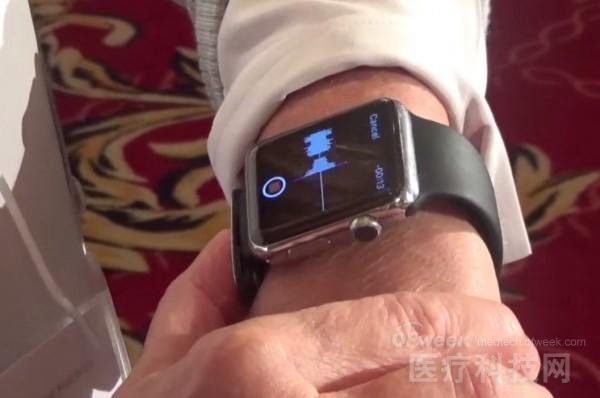In recent years, gene sequencing has been rapidly applied to the clinical field in the United States and Europe, but the regulatory system for clinical sequencing has not yet formed. Recently, at the annual meeting of the American Society of Human Genetics (ASHG), the regulatory issues of clinical sequencing have been heatedly debated. The participating members included US and European clinical researchers and representatives of the FDA. Clinical Molecular Genetics at Columbia University: Expanding the scale of gene sequencing requires the joint efforts of health care providers and patients Wendy Chung, a clinical molecular geneticist at Columbia University, said that in recent years, with the rapid development of gene sequencing technology, the price is getting lower and lower, and genetic testing for diagnosis of cancer and genetic diseases (including targeted gene detection, exon sequencing) And whole genome sequencing) is rapidly expanding in the United States. However, researchers are still exploring the clinical effects and cost-effectiveness of gene sequencing. Chung pointed out that in the clinical research process, in some cases, the sequencing results will be fed back to the participants, but the clinical diagnosis is rather vague, at least from the patient's perspective. The public is concerned with the effectiveness of sequencing experiments to provide variable annotations. For this, Chung says that variable annotations improve over time, because the more variation data is collected, the more helpful it is to build and correct the database. At the same time, he stressed that scaling the scale of gene sequencing requires the joint efforts of health care providers and patients. FDA: It is a very interesting idea to force the lab to deposit clinical variability into the database. At the same time, as a member of the Precision Medical Program, the FDA is already exploring how to align clinical sequencing when sequencing extends from targeted gene panels to whole genomes and exons. Liz Mansfield, deputy director of the FDA's Office of In Vitro Diagnostics and Radiation Health, said the FDA is currently studying how to adopt a different approach to regulation in a more innovative way. The FDA acknowledges that sequencing technology is constantly evolving and requires a regulatory framework for innovation to continue to grow. To this end, the FDA published a white paper last year and held a meeting earlier this year to discuss regulatory issues for sequencing. Mansfield said that two seminars will be held in mid-November to discuss the standard methods for performance evaluation of NGS analysis and the use of clinically relevant databases for genetic variation, and the FDA will soon publish an annex to the white paper. Mansfield concluded by stating that it is interesting to force the lab to deposit clinical variability into the database, although it may not be clear in the United States. European Human Genetics Association: Scientists should be more active in shaping the regulatory system for genetic testing According to Philippos Patsalis, the leader of the Institute of Neurology and Genetics at Cyprus, the European Human Genetics Association has been opposed to the European Parliament's regulations on in vitro diagnostic medical devices . In a report last year, the European Human Genetics Association stated that the amendment would limit patients and doctors to carry out the necessary genetic testing. However, the European Human Genetics Association supports the European Commission’s regulatory regime to improve the quality, safety and availability of IVDs, which means that mandatory genetic counseling for all genetic tests can lead to excessive cumbersome and infeasible, thereby limiting gene sequencing to patients. Availability. Patsalis said that direct-to-consumer genetic testing has been controversial in Europe, and there is deep concern about the lack of medical supervision, sequencing accuracy, follow-up consultation, and privacy protection. At the same time, Patsalis called on scientists to be more proactive in shaping the detection of genetic testing. Chief Scientist, National Centre for Medical Genetics, Ireland: Existing research on specific genes and diseases cannot be ignored David Barton, chief scientist at the National Centre for Medical Genetics in Ireland, pointed out that so far there is no mandatory laboratory certification in the European Union for human diagnostic laboratories. Regarding the regulation of LDT, there has been similar discussion in the United States and Europe, although Europe has adopted a cautious approach to the secondary outcome of sequencing and has not taken a proactive approach. Barton said that existing research on specific genes and diseases cannot be ignored in the collection of mutated information in new databases such as ClinVa. No one is a genome-wide expert, but there are many experts for individual genes. We are a professional Chinese supplier of Boosts Immunity Material; we supply various products of Health Care Materials; and we can providing product images and basic parameters with each Improve Immunity Materials and Immunity Enhancement Materials, such as Ginseng Extract, Shiitake Extract, Lion's Mane Mushroom Extract, etc. Look forward to your cooperation! Ginseng Extract,Improve Immunity Materials,Shiitake Extract,Lion's Mane Mushroom Extract,Health Care Materials Xi'an Quanao Biotech Co., Ltd. , https://www.quanaobiotech.com
The ASHG conference hot discussion on the construction of clinical monitoring system for gene sequencing cannot be ignored